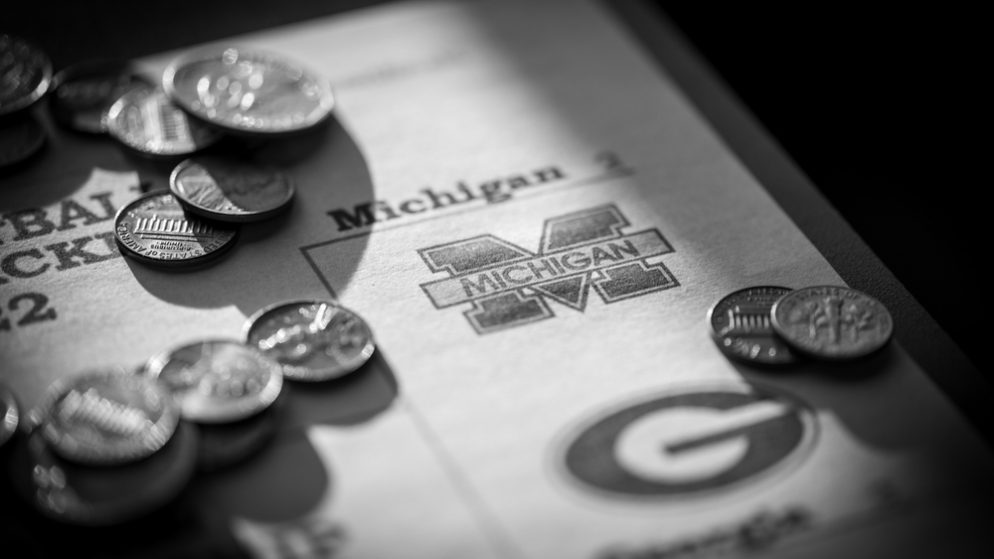

NSUS Group, the parent company of GGPoker is eyeing expansion in the Michigan gambling market. MSUS recently registered as a foreign corporation in the state, marketing the company’s strategic move to introduce its iGaming software to operators in the state.
Over the years, GGPoker’s renowned poker software has gained global recognition owing to its exceptional features, as well as immersive gameplay. Now that the brand is eyeing the Michigan gambling market, NSUS aims to introduce operators in the state to GG’s cutting-edge software.
Thus the strategic move to register as a foreign corporation in the state reflects NSUS Group’s commitment to expanding its presence in the online poker market in the US while catering to the growing demands of players. In order to carry out business in Michigan, foreign corporations must all obtain the necessary license and maintain good standing under the laws.
This registration of NSUS Group as a foreign corporation in Michigan follows a similar move made by GGPoker in May 2021 when it registered in the New Jersey gambling market. Furthermore, NSUS already boasts an interactive manufacturer gaming license in Pennsylvania, which it acquired in February 2021.
These significant developments indicate that NSUS has been actively working behind the scenes to facilitate the growth of multi-state poker in the US through partnerships with existing online casino gaming operators. When asked, Paul Burke, a spokesperson for GGPoker acknowledged that the company will continue exploring such opportunities in the future.
However, specific details and partnerships are yet to be divulged. To cement its presence in the US, NSUS Group has set up an agent office in a suburb of Detroit. NSUS Group, which is an Ontario-based organization, has been extremely vocal about its ambitious plans to enter the North American market with its renowned GGPoker software.
Apart from an existing partnership with WSOP in Ontario, GGPoker’s software has made limited progress in North America. Records from the Department of Licensing and Regulatory Affairs (LARA) show that NSUS applied to register as a foreign corporation on March 27th with the license being issued later on April 3rd.
In its application, NSUS stated that it wished to license poker software and related back-office systems to interactive gaming operators in Michigan. Plus, GGPoker has already set up an agent office in Detroit that will facilitate operations. Please note that even though NESUS is now registered as a foreign company in Michigan, it still not listed as an operator, supplier, or vendor by the Michigan Gaming Control Board.
This means that in the future, GGPoker will still need to obtain a license from the Michigan Gaming Control Board before it can debut online poker in the state. Before NSUS could be approved to register as a foreign company in the state, it included a certificate of compliance from Innovation, Science, and Economic Development (ISED) Canada, thus confirming the company’s compliance with the Canadian Business Corporation Act.
As mentioned a little earlier, NSUS Group already boasts an established presence in Ontario, New Jersey, as well as Pennsylvania. Although it remains to be seen which online poker operators in the country that NSUS is most likely to team up with, possible candidates include Barstool Sports, DraftKings, as well as GGPoker as these operators all have access to states that allow multi-state poker.
As GGPoker sets its sights on the country’s vast online poker market, gamblers can look forward to a dynamic and competitive online poker environment. The introduction of GGPoker’s software will no doubt elevate the online poker experience and offer gamblers more exciting opportunities, cash games, as well as exclusive promotions.
What we cover
Lots of opportunities waiting to be explored in multi-state poker
Over the last couple of years, the landscape of online poker in the country has evolved, driven mainly by the emergence of multi-state poker networks. With the regulation of online gambling in several states, the idea of pooling poker players from various jurisdictions to create even bigger prize pools has become attractive to both players and operators.
In 2021, the state of multi-state poker in the country presents a promising and dynamic environment that players, operators, and technology companies such as NSUS can take full advantage of. Of course, the journey to achieving multi-state poker has been anything but easy.
This journey has been ongoing since the Interstate Wire Act of 1961, which prevented the transmission of gambling-related information across state lines. However, legal developments and changing attitudes towards online gambling in the recent past paved the way for the increase of multi-state poker networks.
The launch of the Multi-state Internet Gaming Agreement also known as MSIGA in 2018 was a significant milestone that set the ball rolling. It is MSIGA that enabled states to enter into compacts that permitted the sharing of player books. Today, states including Nevada, Delaware, New Jersey, Pennsylvania, and Michigan have formed these interstate agreements, thus providing the perfect environment for multi-state poker to thrive.
The multi-state poker network brings with it plenty of benefits for all involved. For operators, pooling poker players from multiple iGaming states boosts liquidity, ensuring larger prize pools and more competitive tournaments. Multi-state gaming also allows operators to offer an array of gaming formats, which should cater to even more players.
The gamblers themselves also benefit greatly from MSIGA. The bigger player pools offer punters more chances to find action at various game types and stakes, which results in increased availability and shorter wait times. Plus, when players are pooled, it results in massive tournament guarantees, including prestigious series such as WSOP and other major poker tournaments.
Despite the progress that has been made in multi-state poker, plenty of challenges still prevail especially as far as regulatory considerations are concerned. One of the biggest hurdles is expanding the agreement so that even more states can be included in the compact. As of this year, only a handful of states have entered into the MSIGA, which has severely limited the progress of the industry.
Final Thoughts
GGPoker’s well-known software, backed by NSUS, its parent company is poised to make considerable changes in the gambling market in Michigan and the rest of the country. As the partnerships between GGPoker and iGaming operators across the country unfold, the poker landscape is set for an exciting transformation that will pave the way for a new era of iGaming in the country.

